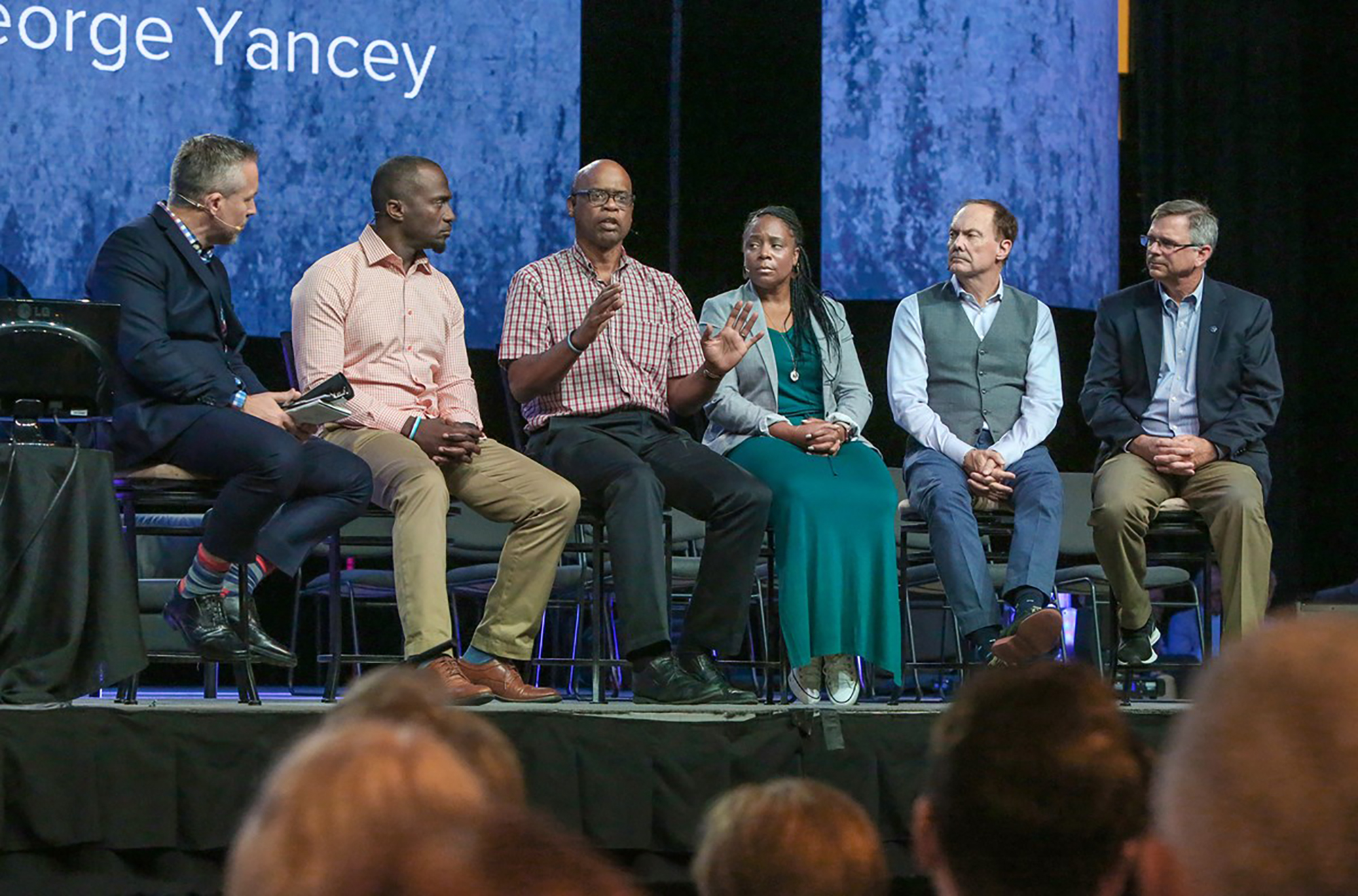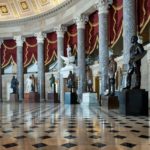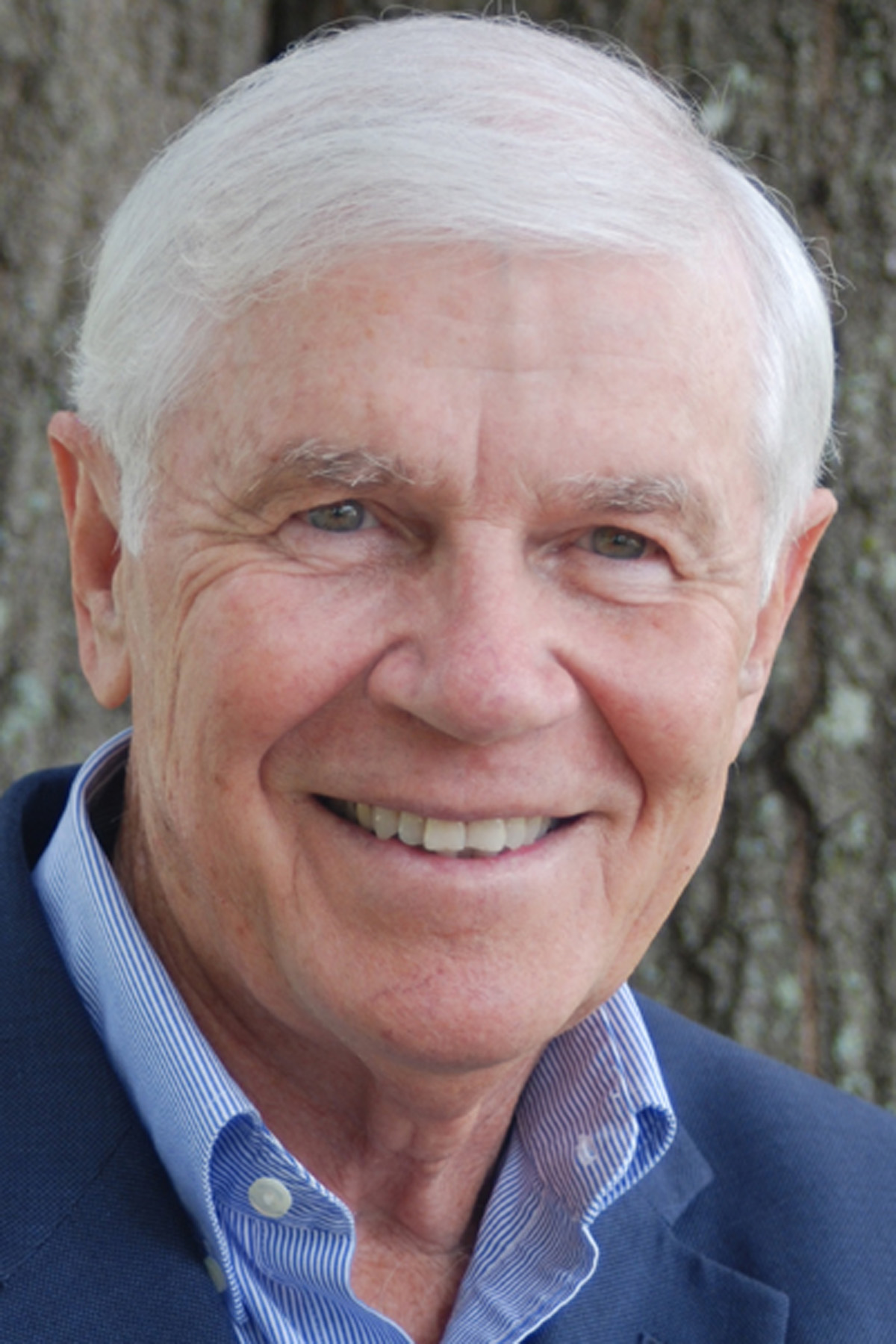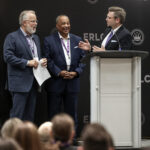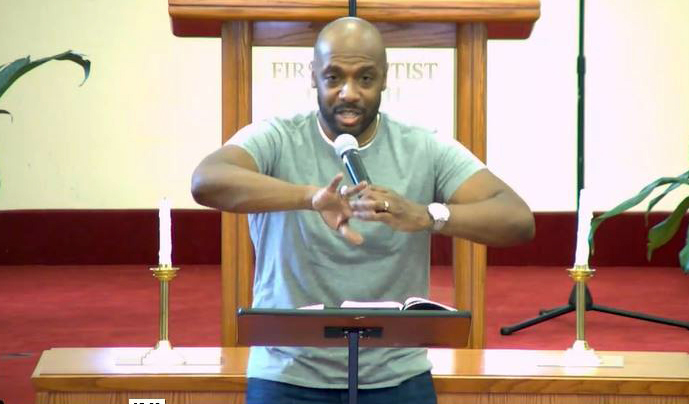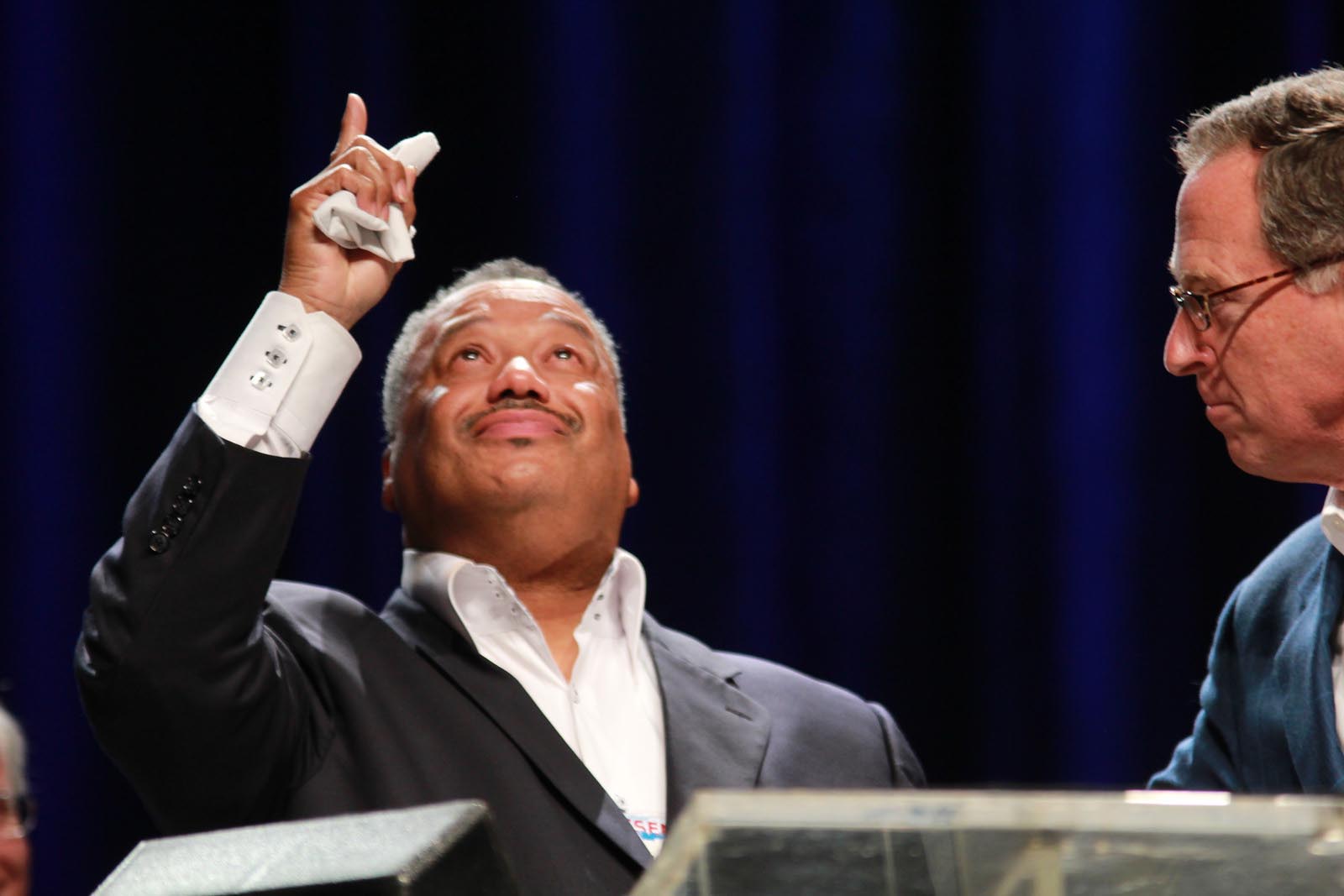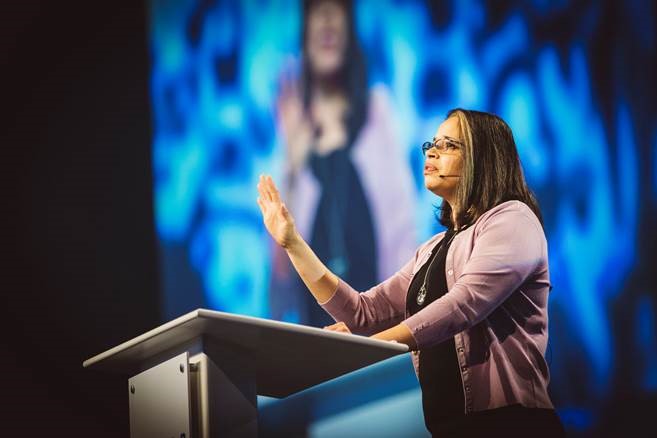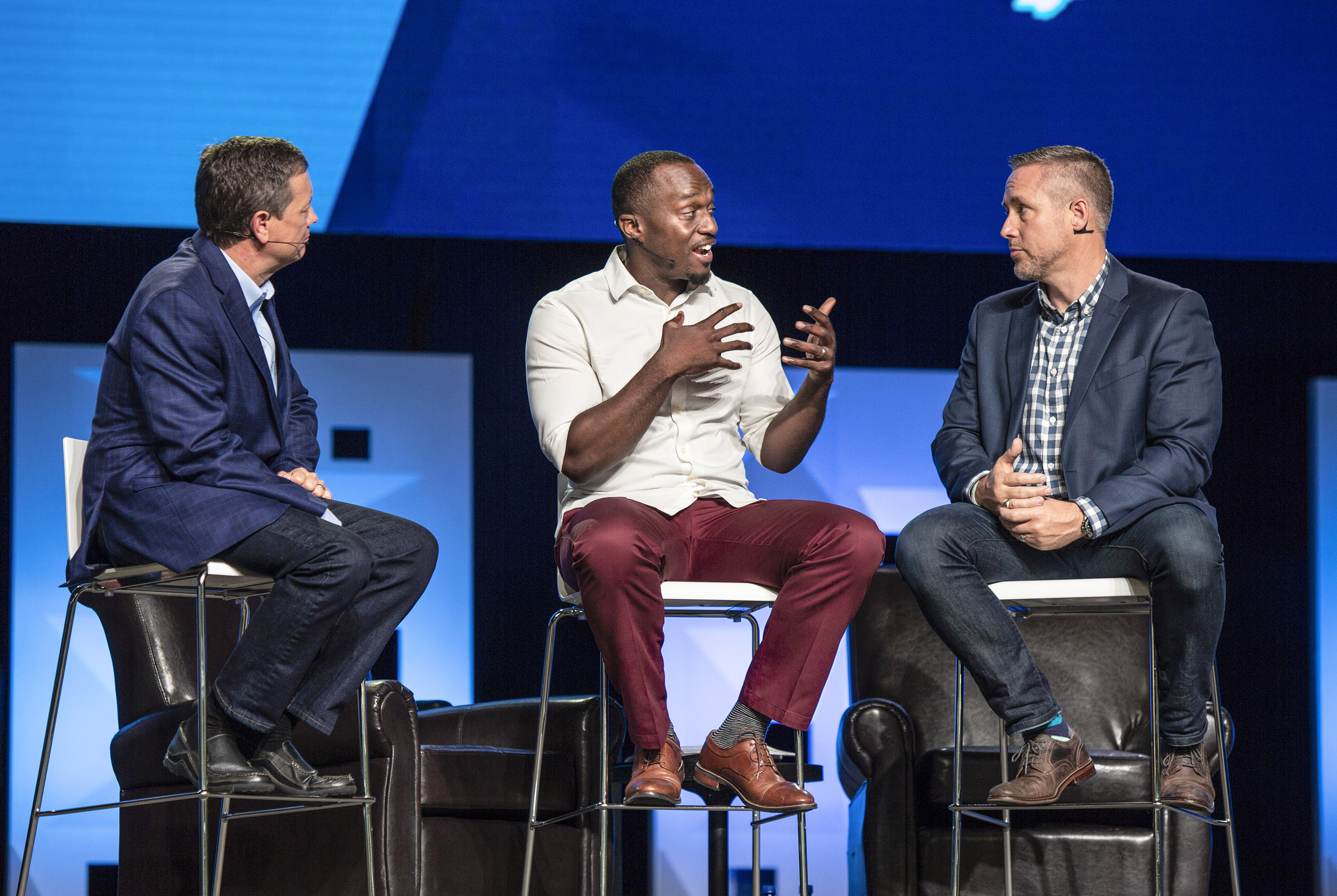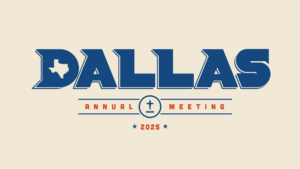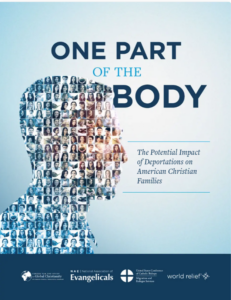
BIRMINGHAM, Ala. (BP) — Sociology professor, researcher and author George Yancey always steps back when he knocks on a door. A 6-foot-3-inch African American, he says his appearance strikes societal fear.
Seminary assistant dean and director Missie Branch says she also encounters difficulties because she is an African American woman. She says she’s either overlooked or viewed through stereotypes “which results in fear where everything I do and say or wear is a big deal.”
Southern Baptist Convention President J.D. Greear would like white Southern Baptists in particular to hear Yancey’s and Branch’s stories. Greear included the two among a panel to discuss race relations during the 2019 SBC Annual Meeting June 11-12 in Birmingham, Ala.
Moderating “Undivided: Your Church and Racial Reconciliation,” Greear spotlighted advice and wisdom from, in addition to Yancey and Branch, Marshall Blalock, pastor of The First Baptist Church of Charleston in Charleston, S.C.; Dhati Lewis, lead pastor of Blueprint Church in Atlanta, Ga., and vice president of the Send Network for the North American Mission Board; and James Merritt, lead pastor of Cross Pointe Church in Duluth, Ga.
Greear focused on why Southern Baptists need to discuss race relations and how the church can improve in that area. He addressed the effects of hundreds of years of living in what he termed a “racialized society.”
“We’ve got to lament that we live in a racialized society where this is even a question,” said Greear, senior pastor of Summit Church in the Raleigh-Durham, N.C., area. “And it really shouldn’t be a question, but sins have consequences. Sins from the past have consequences in the present.”
At the University of North Texas in Denton, Texas, Yancey has researched and written extensively on issues of race and ethnicity, and works with a network of multiracial congregations in racial reconciliation and multiracial ministry.
Societal fear of black men, he noted, is connected to why the demographic gets shot in everyday life.
“Now, I want you to make that connection,” Yancey told Southern Baptists. “I’m not saying I’m afraid of getting shot; what I’m saying is that there’s a fear in our society that I’m reacting to that also plays itself out in other situations where African American men are deprived of their lives.
“I can’t divorce myself from that,” Yancey said. “There’s an additional rate to that in my life. It’s part of who I am.”
Blalock lives in Charleston, S.C., where white supremacist Dylann Roof shot and killed nine blacks during a Bible study at Emanuel African Methodist Episcopal Church four years ago today (June 17).
“When that happened, God convicted me that night,” Blalock said. “As much as I thought I was trying to help build these bridges, God convicted me that I must, I’ve got to do all we can as a church to make these bridges happen.
“Because the average Christian in our church, and most churches that we’re members of, mostly white, don’t get up in the morning and say I want to find ways I can hate black people,” Blalock said. “They’re just ignoring black people. I realize I’ve done the same thing. I’m not pointing fingers at anybody. I’m saying I know what it feels like because I’ve done the same thing.”
When Anthony Thompson, whose wife Roof killed, spoke at Blalock’s pastorate on forgiving Roof and encouraging him to repent, the Southern Baptist church “saw in him the image of Christ,” Blalock said. Race relations is “something we have to address. Don’t wait for nine people to get killed in your city before you do this, is what I’m saying.”
Merritt said Southern Baptists still have a long way to go in race relations, acknowledging progress already made.
In conducting research to participate on the panel, Merritt learned of a contemporary incident Southeastern Baptist Theological Seminary experienced in responding to a church’s request for pulpit supply. SEBTS’s recommendations included several white students and then, a black student in the fifth week.
“When they found out that the person was black, they called back and said no thanks, we won’t let that happen in our church,” Merritt learned. Also, when Merritt supported the 2016 SBC resolution encouraging Southern Baptists to stop displaying the Confederate battle flag, a man he had pastored 20 years left Cross Pointe Church, Merritt said.
“I think I’d be naïve to say no, we don’t have a racial problem in the SBC,” Merritt said. “So the cold hard truth is yes, I believe there are pockets of people still in our convention who don’t understand really where we need to be on race.”
For Lewis, the roadblock to progress in race relations is not the church who refused to employ a black seminarian in pulpit supply. The problem instead, Lewis said, is when Southern Baptists refuse to acknowledge there is a problem.
“I’d rather you be upfront with me,” Lewis said. Denial of the problem “comes from what we have termed ‘white fragility.’ It’s really just kind of like I don’t want to be considered a racist or discriminate, therefore I’m not going to say anything. I’m not going to do anything because I don’t have a problem. And I think that type of passivity is exasperating the problem.
“I’d rather us run to the tension, let’s deal with it face to face and have honest dialogue,” Lewis said. “So what would you be saying if it was an all-white context, people you feel comfortable with? What would you be saying if it’s an all-black (context)? And then, be able to have those types of conversations in the room.”
Southern Baptists need to know that blacks view issues in terms of community, Lewis said.
“A problem is not a real problem unless it’s your problem. And the way something becomes your problem is through relationship and proximity,” Lewis said. “If my wife has a problem, it’s my problem. If it’s the children across the street getting shot, it’s my problem. Minorities think about issues systemically because it could so easily happen to me. The majority (whites) think about things personally.”
Branch, assistant dean of students to women and director of graduate life at SEBTS, agreed with Lewis.
“Because African Americans still do operate as a community, we still very much feel the pain of someone being shot in Ferguson,” she said. “I feel as the mother of a 20-year-old male, what it feels like for another 20-year-old male to be shot in the street. And because we operate that way, it may not be normal, it may not be natural in the majority culture communities, but to remember if that’s who’s in your church, to not speak to it sends as loud a message.”
Race is a discipleship and heart issue, Blalock said.
“People sometimes think it’s a political issue or it’s a cultural issue, but the bottom line for us in Charleston is, this is a matter of discipleship,” Blalock said. “Until you see people and they’re made in God’s image, and you’re able to listen and build those bridges, then you’re not able to actually live the power of the Gospel in your life.”
Panelists encouraged Southern Baptists to listen to one another, especially where there’s disagreement.
“Always consider others more important than yourselves,” Merritt said, addressing white pastors in particular. “We have a great opportunity to say to our African American brothers, and our Asian and Koreans and every minority and even illegal immigrants, that Christ reigns supreme in our life. We look at you the way God looks at you. We love you the way God loves you.
“We need to listen more than we talk,” Merritt said. “We’ve not been black. We don’t know what it’s like to be pulled over by a police officer in the middle of the night and wonder what’s going to happen. That’s just the cold hard truth.”
